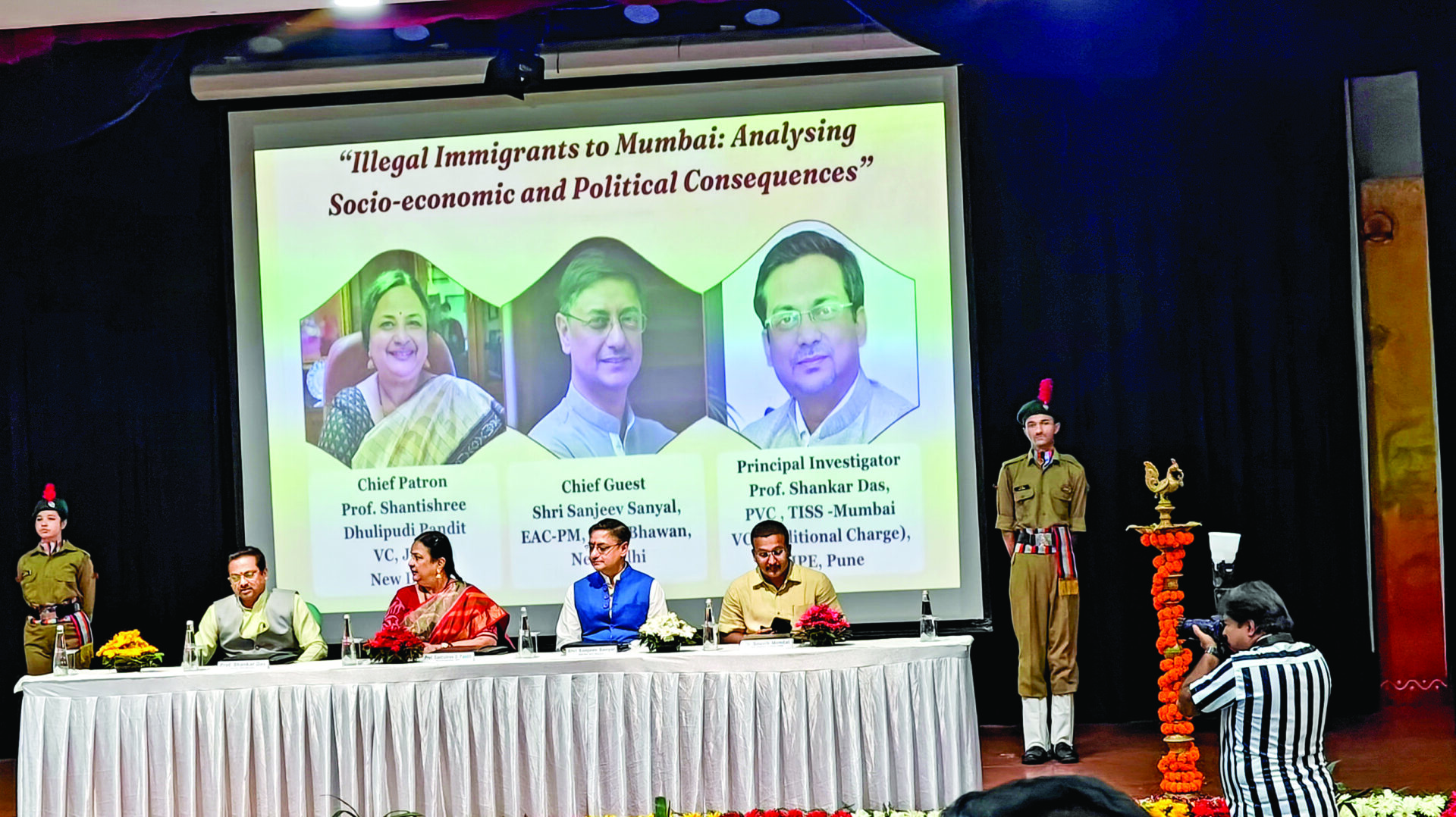Illegal immigration from Bangladesh and Myanmar pressures Mumbai’s resources, impacting jobs, security, and politics.
New Delhi: Illegal immigration from Bangladesh and Myanmar is altering Mumbai’s social, economic and political discourse, and undermining democratic representation as politicians cater to immigrant groups for votes, claimed a new report. According to the interim report by Tata Institute of Social Sciences (TISS), Mumbai, titled- “Illegal Immigrants to Mumbai: Analysing Socio-Economic and Political Consequences”, illegal immigrants especially Muslims from bordering Bangladesh and Myanmar has been on the rise in Mumbai, putting unsustainable pressure on the city’s limited resources.
“Since 1961 the percentage of Hindus has decreased substantially from 88% to 66% in 2011, while there is a significant rise in the Muslim population from 8% in 1961 to 21% in 2011”, the report said.
The report further projected that “Hindu population by 2051, would drop down below 54% and the rise in Muslim population will be approximately 30%”.
The interim report was released just a few days before the high stakes Assembly elections in Maharashtra and Jharkhand, where the political parties have been using the issue of ‘illegal infiltration’ as a poll
The interim report highlights how illegal immigration flooded the job market and undermined Mumbai’s local workforce, “driving down wages and displacing residents”. It also claims that this causes tensions and violent clashes between locals and immigrant communities, while law enforcement agencies struggle to maintain order in increasingly congested immigrant neighbourhoods.
“The ongoing influx demands urgent policy intervention to address security, employment, and community stability in the city”, it adds.
The report also observed that 12 Assembly constituencies in Mumbai have a majority migrant population, influencing voting patterns and giving rise to what it termed “shelter politics”.
Presenting the findings of the interim report, Shouvik Mondal, Assistant Professor at TISS, the co-principal investigator of the study alongside TISS Pro-Vice Chancellor Shankar Das, at Jawaharlal Nehru University on Monday said, “Several NGOs and religious groups are also helping these immigrants, which changes the demography of the region and influences the economy and politics.”
Mondal also highlighted how the issues of illegal Rohingya immigration is being seen as a human rights issue, while its possible impact on society is overlooked, and how this is creating a lot of pressure on the socio-economic and political discourse of Mumbai, impacting the job opportunities for locals and raising security concerns as well.
The event was also attended by Sanjeev Sanyal, a member of the Economic Advisory Council to the Prime Minister, as the chief guest along with JNU Vice Chancellor Santishree Dhulipudi. Sanyal in his speech highlighted the issue of illegal migration as a global issue, comparing it to similar political debates in the US and Europe, where immigration impacts demographic trends and the destiny of nations.

